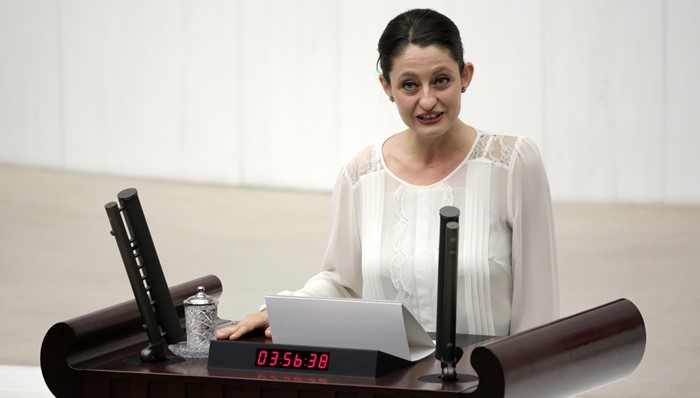Republican People’s Party (CHP) deputy Şafak Pavey, who has shared her impressions from visits she paid to some well-known prisons in Turkey, has said there is widespread maltreatment, insult and torture of inmates in the prisons.
Pavey, who has visited Silivri, Sincan, Sakarya and Bakırköy prisons numerous times since the declaration of emergency rule in the aftermath of a failed coup attempt on July 15, relayed her impressions from the prison visits in an article published in the Cumhuriyet daily on Tuesday.
As many as 50,000 people have been jailed in Turkey since July 15 under the pretext of an anti-coup fight.
“From what I have seen [during prison visits], I am of the belief that there has not been any period in Turkey when heavier rights violations of inmates and convicts took place. Social, administrative and illegitimate pressure [on prisoners] is at unprecedented levels. Being different from what happened in other [state of emergency] periods, human rights violations have been institutionalized during this period, and they have been made to gain legitimacy not only politically but also socially,” wrote Pavey.
Human rights group Amnesty International reported on July 24 that it had received credible evidence of detainees in Turkey being subjected to beatings and torture, including rape, since the failed coup on July 15.
“Body searches are conducted in a way that damage human dignity. Strip searches and reverse handcuffing [of prisoners] have become routine. Maltreatment, beating, insults, threats and acts of torture [against prisoners] are not even kept secret [by the prison] officials, they perpetrate these acts openly with the belief that ‘they deserve every act of evil,'” wrote Pavey.
According to the CHP deputy, indictments for people who are kept in pre-trial detention are not prepared for a long time, and these people are not informed of what accusations they face; hence, the number one rule of universal law is being ignored.
“What is more, accusations which do not exist in the Turkish Penal Code [TCK] have been manufactured and indictments have been prepared based on nonexistent criminal code articles. If it had wanted, the government, which has a majority in the Parliament, could have turned those accusations into legislation. This unusual situation creates confusion from the perspective of the law,” said Pavey.
Prisoners’ lack of access to lawyers and doctors is also another problem in prisons mentioned in Pavey’s article.
“Many of the prisoners do not have lawyers. … For example, none of the intern pilots who have been jailed in Sincan Prison for nine months have lawyers. … The detainees and inmates’ need for a doctor is ignored unless it is very urgent,” wrote Pavey in her article.
